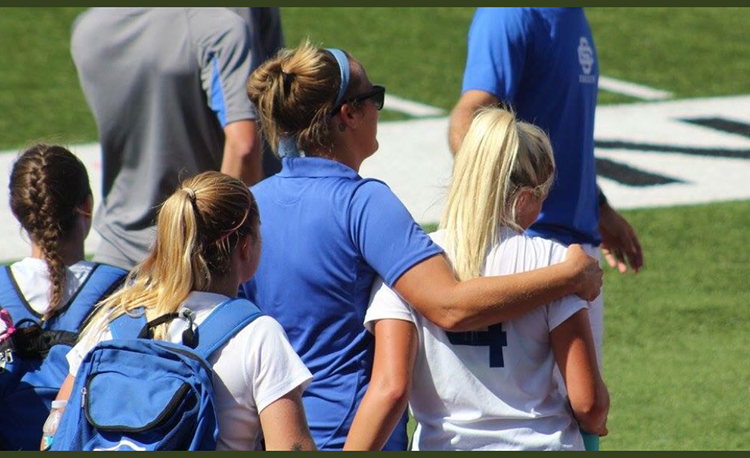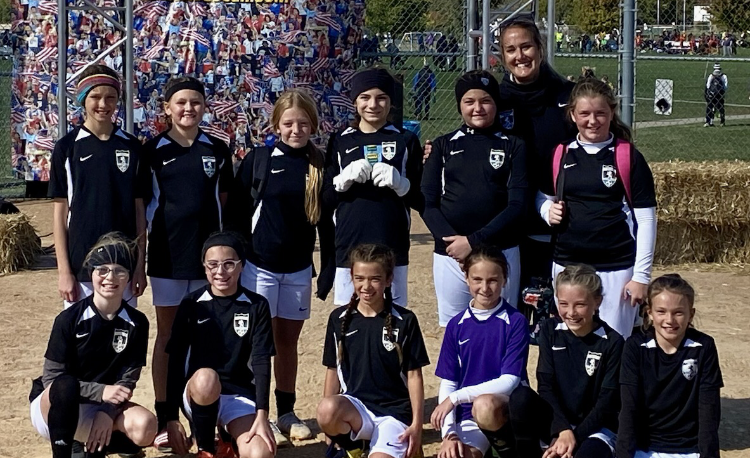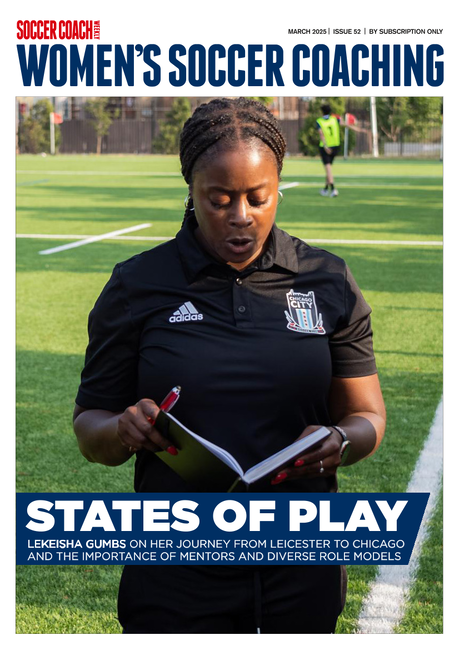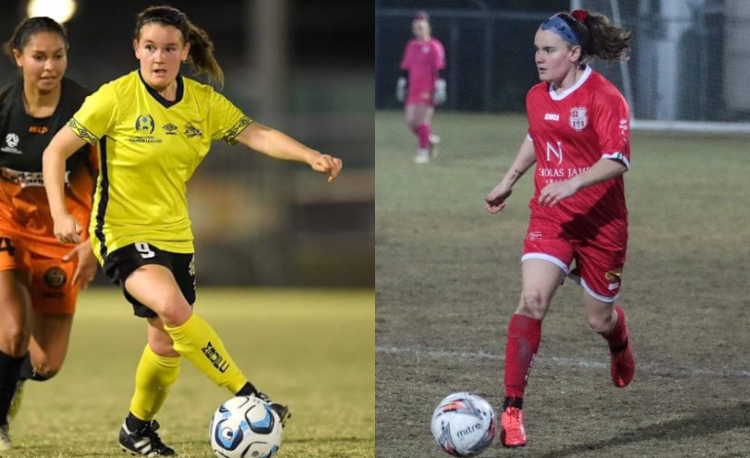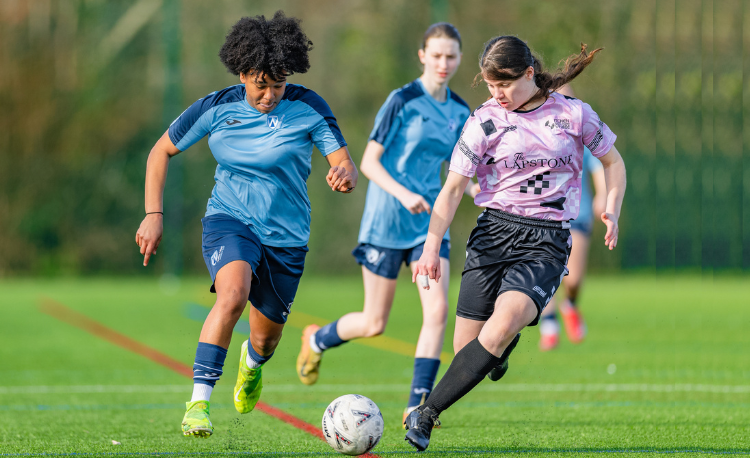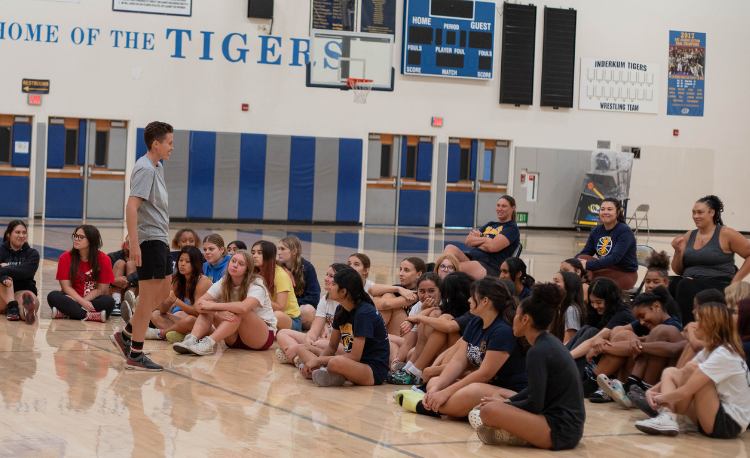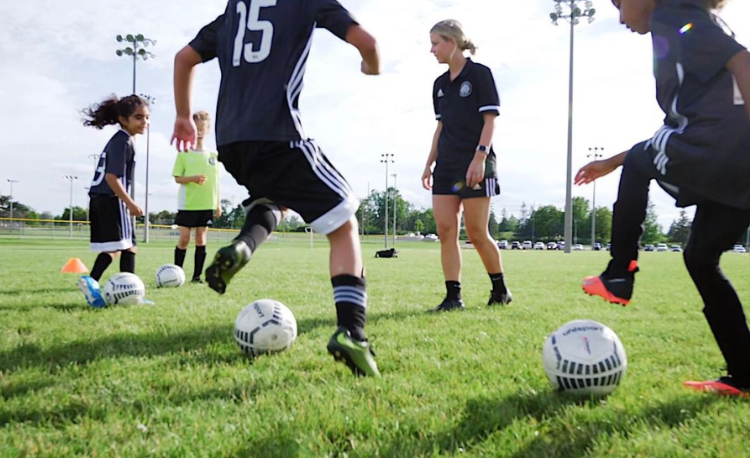You are viewing
1 of your 3 free articles
7 tips for bridging a generation gap
As you get older as a coach, it can become more difficult to connect with young players. Wendy Arnett gives advice on staying relevant and gaining respect
When I started coaching, I was four years older than my oldest player.
I am now almost 20 years older than my youngest college player and light years older than my youth players!
Here are some things that have helped me stay relevant with my athletes as the age gap increases...
01 Make sure you coach for the right reasons
Starting out as a young coach, I was intense and competitive - but, overall, my goal was to coach athletes to have an excitement for the game and to ensure they were able to continue throughout life using things soccer taught them.
If you are in the coaching realm for just status, often you will see burnout from athletes, unreal expectations, and a lack of joy in training and in games.
Putting pressure on athletes to just win isn’t how they grow. Develop these kids and trust the process. Results come from trusting the process.
Is it always easy? Absolutely not, but try to remember, with younger kids, they aren’t going to remember a win or a loss. They’re going to remember trips, having fun with their friends, and how you made them feel as a player.
02 Be passionate and be positive
Trust me, you can do both. You can be super passionate about the game but you don’t have to belittle your players in the process.
Use constructive criticism in the right ways to draw out the best of your athletes. It often helps to use a ’positive sandwich’ when giving constructive criticism - tell them something positive about their play, then give them something they can improve on followed by something positive.
This isn’t to feed into egos, but you will get more productivity out of people, especially female players, by giving them confidence in themselves and challenging them at the same time.
03 Be consistent
Ensure you treat your best player and your worst player equally. Hold them accountable - it doesn’t help your team if you’re willing to turn a blind eye to poor behavior from your best athletes while holding others to a different standard.
It is important that everyone on your team understands their roles and can flourish in them. It’s your job to help them flourish - when you do, you get the best out of your team.
If they ask questions, listen to what they are asking you - don’t already have the answer in hand. Think it through and give them a quality answer.
Also, try to be consistent in your own personal behavior. Kids don’t want to come to practice with a moody coach one day and a super happy coach the next.
04 Empower your players
With my younger club kids, I allow them to come up with names for our kick-off plays or corner-kick ideas.
When I involve them with smaller things, they become more engaged and even want to decide which play to use. It also helps them to become independent thinkers on the field.
Even though tactics are a coach’s domain, don’t be afraid to ask your players for their input or insight. Remember, they are the ones on the field, they are seeing the play happen in real time - from the sideline, we can only see and say so much.
Prepare players to the best of your ability, but then empower them to make their own decisions.
05 DON’T BE AFRAID TO Be humble
Coaches are human beings and we are going to get things wrong from time to time. Don’t be afraid to share that with your athletes.
If we lose a game, I will be the first to take responsibility for it. I don’t blame my kids. When we win a game, I am the first to say it’s all because of them and their hard work, not because of me - I am far from perfect and I want my kids to know that.
I like to have fun. I may take things seriously, but, at times, it’s okay to not take things so seriously.
My club team recently came to a college game and our college girls have a celebratory dance they do when they score goals.
My club kids took to that dance and now when they score, we all do this silly dance. It strengthens our bond and, to be honest, it’s just plain fun.
"When they score, we all do this silly dance. It strengthens our bond and is just fun..."
06 Get to know your athletes
Get to know what drives the players you coach. What are they interested in?
I often try to have conversations with my college kids about their families and what they’re majoring in. I want to know what their plans are after graduation - maybe I have someone in my network that can help them on their new journeys.
Stay in touch with your players. I have experienced births, deaths, weddings, major accidents, and small incidents with all of these kids. It’s important they know how much you care and to what lengths you will be there for them. ’Ohana’ [family] always.
With my club kids, I often ask ’what are you guys studying in school right now?’, or ’how are your families?’. Some play other sports, so I want to know how their season is going.
I recently had a club goalkeeper who missed one game in a tournament because she made state cross country. What an accomplishment. I told her how proud I was and we would see her for the second game that evening.
Don’t be selfish and demand these kids only do soccer. Remember, they are just kids.
07 Have a good mentor
This is one of the most important aspects to coaching. You don’t need a ’yes man’ - you need someone who will help you grow, who will challenge your ideas, who will support you, and who will push you to be your best.
Throughout my career, I believe I have had one of the best mentors, who has also turned out to be someone I consider family at this point (big thanks to Tyler for always believing in me).
They not only help you mature, but they help you with resources. They want the best for you and, in return, your athletes get the best - and at the end of the day, that’s what they deserve.
Related Files
Newsletter Sign Up
Newsletter Sign Up
Discover the simple way to become a more effective, more successful soccer coach
In a recent survey 89% of subscribers said Women's Soccer Coaching makes them more confident, 91% said Women's Soccer Coaching makes them a more effective coach and 93% said Women's Soccer Coaching makes them more inspired.
*includes 3 coaching manuals
Get Inspired
All the latest techniques and approaches
Women's Soccer Coaching offers proven and easy to use soccer drills, coaching sessions, practice plans, small-sided games, warm-ups, training tips and advice.
We've been at the cutting edge of soccer coaching since we launched Soccer Coach Weekly in 2007, creating resources for the grassroots youth coach, following best practice from around the world and insights from the professional game.
